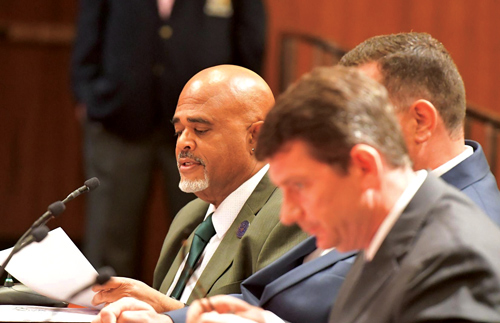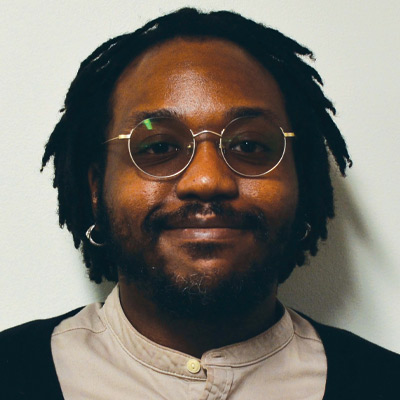 June 5, 2025 — The Department of Corrections and Community Supervision (DOCCS) has been under a microscope over the past few months following the death of Robert L. Brooks at Marcy Correctional Facility in December 2024, the death of Messiah Nantwi at Mid-State Correctional Facility in March 2025 and the 22-day strike held by Corrections’ Officers at almost all DOCCS facilities.
June 5, 2025 — The Department of Corrections and Community Supervision (DOCCS) has been under a microscope over the past few months following the death of Robert L. Brooks at Marcy Correctional Facility in December 2024, the death of Messiah Nantwi at Mid-State Correctional Facility in March 2025 and the 22-day strike held by Corrections’ Officers at almost all DOCCS facilities.
In response, DOCCS, unions and legislators have been working on policy recommendations to increase safety, transparency and accountability at all DOCCS facilities for both staff and the incarcerated population. To help facilitate that, state legislators held a joint committee hearing on May 14 to examine the “Safety of Persons in Custody, Transparency, and Accountability within State Correctional Facilities.”
Members of the state legislature heard from DOCCS commissioner Daniel F. Martuscello III, criminal justice advocates, unions—like PEF and AFSCME—and others.
PEF President Wayne Spence told the committee that PEF members were on the frontlines throughout the corrections’ officer strike and in the face of increasing violence. PEF’s written testimony included statistics that show 2,697 reported assaults on staff in 2024, a 77% increase since 2023.
“I asked the commissioner last week before I testified: what is the capacity right now? Are there any correctional facilities with over 60% corrections’ officers? The answer was no,” said President Spence. “My members, the civilians who are there, who were never trained to do that type of work, are now doing that work.”
While many legislators focused on how the state could do more to recruit and retain staff, especially corrections’ officers, President Spence said that safety has to come first for PEF members who work at DOCCS.
“You cannot have somebody get raped, you cannot have somebody get stabbed, and there are no consequences,” said President Spence. “What civilian would want to come to a facility and work after they’ve seen or heard that their co-workers were raped and there were no consequences to the person that perpetrated that crime?”
President Spence also spoke about the union’ support for body cameras — including civilian staff.
“I welcome body cams, I say that body cams make everybody transparent,” he said. “What you see, you can’t un-see. What you say, you can’t unsay. And if you’re a bad actor, it’s going to reveal itself.”
The testimony also voiced support for any legislation that addresses recruitment and retention, and comprehensive reforms to the HALT Act that would provide safety and accountability for staff and incarcerated individuals.
PEF’s written testimony also includes support for expanding access to protective custody, personalized mental health treatment, and segregated confinement for repeat offenders, as well as expanding the list of offenses in Correction Law to include possession of drugs like fentanyl, sexual misconduct and assault, and exposing staff or other incarcerated individuals to bodily fluids or materials. PEF also supports the expansion of the merit time program to shape positive behavior.
“Some of the best outcomes when being moved out of solitary confinement are programming,” President Spence said. “There is either one-on-one, individual therapy sessions or group sessions all the time. We enacted HALT but did not get any resources.”
President Spence also recognized that there is a culture at DOCCS that does not do enough to protect those who speak out against the violence at their facilities. He said that regardless of policy or who is running the state, career managers who manage the facilities are going to do things their way.
“My nurses, when I came here in 2015, nurses said that they were afraid to talk out when they see something wrong,” said President Spence. “Because if they talk out—if a teacher talks out—they might be in a situation where they need help, and no help is going to come.”
PEF believes that safety in DOCCS facilities is an issue that should bring everyone together.
“All stakeholders should have a seat at the table,” said President Spence. “All stakeholders should be heard, and all stakeholders have a responsibility to work toward common sense solutions to end the cycle of violence in the state’s DOCCS facilities.”
Editor’s note: Members wishing to watch the entire hearing can view it on-demand, here. The panel that includes President Spence begins at about the 2:46:00 mark.
Download the new PEF Appfor the latest union news and resources on the go! |

